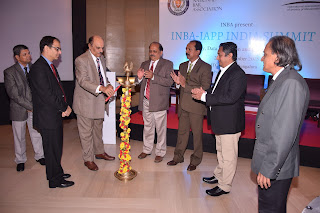INBA-IAPP Privacy Summit 2015 – an insightful beginning to an informative innings for privacy in India

INBA-IAPP Privacy Summit 2015 – an insightful beginning to an informative innings for privacy in India With the lighting of lamp began one of India’s long awaited summit on the subject of privacy. On 23 rd September, 2015, Indian National Bar Association (‘INBA’) represented by Kaviraj Singh, Secretary General and S.Ramaswamy Chairman, General Counsel Section and International Association of Privacy Professionals (‘IAPP’) represented by Rajesh Kumar and Kavitha Gupta, Co-Chairs of the Bangalore KnowledgeNet Chapter, who came together to host the first ‘Privacy, Data Protection and Cyber Security’ summit at ITC Gardenia, Bengaluru. The event started with a Welcome Address note from Hon’ble Mr. Justice M. Chinnappa (Retd), Chairman, State Police Complaint Authority, on the recent technological evolutions and the increasing amount of cybercrimes that are compromising individual rights to privacy. This was followed by thoughts shared by Mr. Kaviraj Singh, Secretary General...